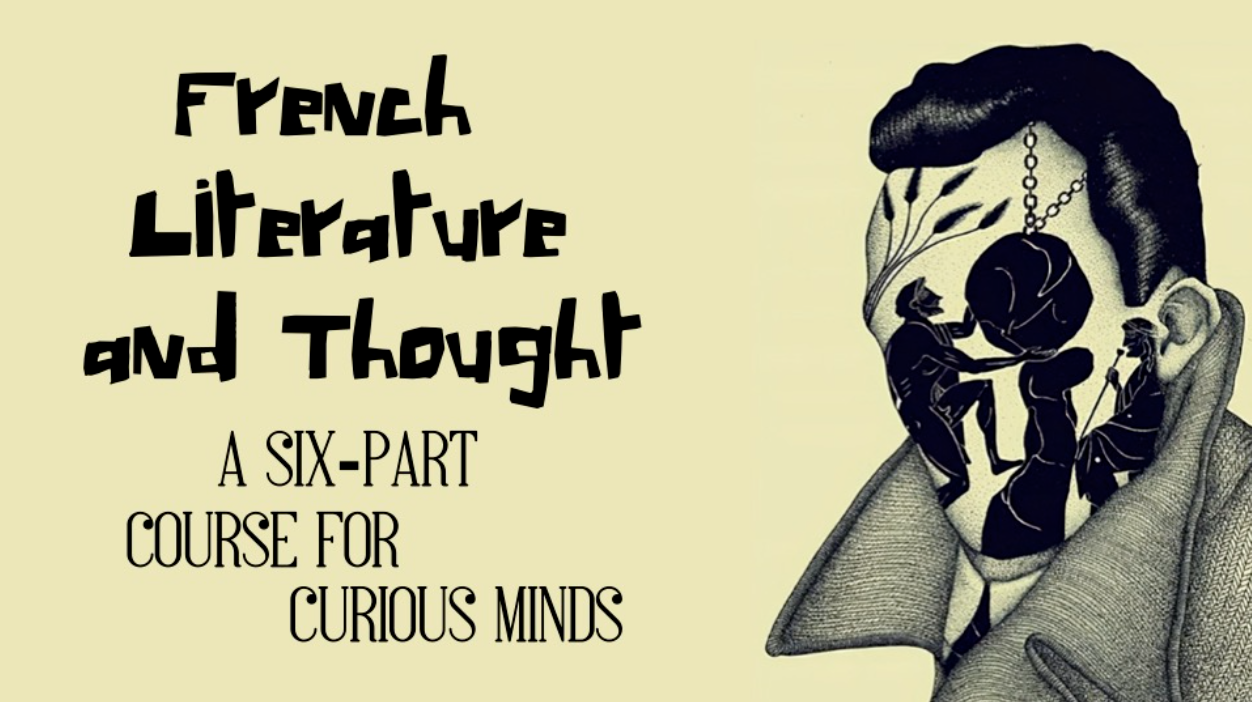From the Renaissance humanists to the Left Bank existentialists, French thinkers have not only asked but profoundly shaped our answers to that eternal question: what does it mean to be human?
Since at least the age of Shakespeare, the British have enjoyed caricaturing the French as a nation of refined, pontificating intellectuals more interested in big ideas than practical matters. And like all the best caricatures the idea contains a grain of truth — since France has indisputably produced many of the most important poets, philosophers, and authors who have ever lived.
Taught by Patrick McGuinness, Oxford Professor of French and Comparative Literature as well as a Booker listed and Encore winning novelist, memoirist and poet, this six-part course is the perfect introduction to some of the greatest and most influential thought in human history.
From the philosophical fables of Voltaire, who dared to promote equality and freedom in a monarchical age, to the 2022 Nobel laureate Annie Ernaux, whose work blurs the lines between fiction and life writing to thrilling effect, this is a course that will change how you see yourself and society.
Encompassing the nature of reality, the meaning of work, the birth of rationalism and scepticism in the Renaissance and Enlightenment and the revolutionary feminism of Simone de Beauvoir, this is an unmissable and thoroughly accessible intellectual treat.
The Programme:
Michel de Montaigne (1533-1592) has been called ‘the first modern thinker’. Learned yet anecdotal, probing yet digressive, his Essais are a landmark in European literature. Based on the verb essayer – to try out, to test – the essay in Montaigne’s hands becomes a place to explore new ways of thinking and dismantle received ideas. Montaigne’s essays are foundational texts in how we approach the world. Always modest but always indefatigable in following his own mind, Montaigne’s watchword was ‘Que sçay-je’ – ‘What do I know?’. Needless to say, he knew a lot, but his real subject is how to know and how to question what we think we know.
Voltaire (1694–1778) is one of France’s greatest thinkers. Enlightenment philosopher, polemicist, political commentator, poet, dramatist, and writer of ‘philosophical fables’, Voltaire reminds us that great writers remain topical because their subjects – for good or ill – remain universal: freedom of speech and belief; equality of race and gender; the need for free sceptical enquiry in a world dominated by tyranny, fundamentalism and fake news.
Albert Camus (1913-1960) is one of the most influential writers of the 20th century. We will explore the complexity and variety of an oeuvre all-too-often reduced to slogans and -isms (Absurdism, Existentialism, etc.). As well as L’Etranger, we will explore La The Plague, The Fall, his short story ‘The Guest’ , and his famous essay ‘The Myth of Sysiphus’.
The writer and philosopher Simone de Beauvoir (1908-1986) is one of the leading feminist thinkers of the 20th century. We will explore her work through close readings of her volume of experimental novellas, A Woman Destroyed (containing ‘A Woman Destroyed’, ‘Monologue’ and ‘The Age of Discretion’). Extracts from The Second Sex, her classic of feminist thought, will be provided for context and discussion.
Roland Barthes (1915-1980) was a literary critic, theorist and semiotician (we’ll go in that…), famous for arguing that ‘the death of the author’ enables the ‘birth of the reader’. His Mythologies (1957) is a landmark study of modern mythologies, and explores a variety of subjects, from advertising to westerns, eating habits to children’s toys, with an anthropologist’s keen eye and a novelist’s grace. We will be studying extracts of Mythologies, as well as two texts in which Barthes displays both playfulness and emotional depth: Fragments of a Lover’s Discourse and the posthumously-published Mourning Diary.
Annie Ernaux (born 1940) has long been a prominent writer on the French literary scene. She was awarded the Nobel Prize for Literature in 2022. Her unsparing work blurs the distinction between first and third person narration, and her subjects and uncompromising in their desire to bear witness to women’s lives, to working-class culture, and to the fault-lines between personal and collective experience. Her most famous work, The Years, is a social and personal history of France over six decades that draws on fiction and autobiography. We will be exploring this work, along with Mémoire de fille (A Girls’ Story, Fitzcarraldo editions).






